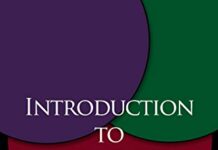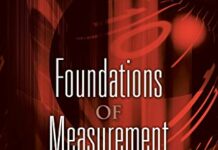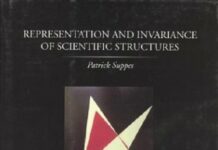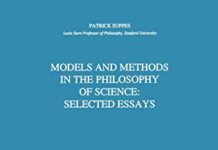
Ebook Info
- Published: 2012
- Number of pages: 384 pages
- Format: PDF
- File Size: 1.73 MB
- Authors: Patrick Suppes
Description
In modern mathematics, both the theory of proof and the derivation of theorems from axioms bear an unquestioned importance. The necessary skills behind these methods, however, are frequently underdeveloped. This book counters that neglect with a rigorous introduction that is simple enough in presentation and context to permit relatively easy comprehension. It comprises the sentential theory of inference, inference with universal quantifiers, and applications of the theory of inference developed to the elementary theory of commutative groups. Throughout the book, the authors emphasize the pervasive and important problem of translating English sentences into logical or mathematical symbolism. Their clear and coherent style of writing ensures that this work may be used by students in a wide range of ages and abilities.
User’s Reviews
Reviews from Amazon users which were colected at the time this book was published on the website:
⭐I own Symbolic Logic by Virginia Klenk, The Laws of Thought by George Boole, Logic Sets and Recursion by Causey and several discrete math texts including Rosens. Each one of them offers you some insight into logic; however, none of them offer the facility to learn logic like this book does. It is even superior as a first text to Suppes other Introduction to Logic which I also own. I highly recommend it to everyone. I wish I would have found this text 20 years ago it really changed the way I do logic.
⭐Very good intro to mathematical logic. Although, the addition proof chapters near the end feel a bit contrived to me, and are limited in scope.
⭐Full of excercises is a good refreshing for a person who has not be exposed for a while to logic. Nevertheless for a 1st time reader might be a bit confusing on the organization of the subjects.
⭐I bought this 1964 book by Patrick Colonel Suppes (1922-2014) and Shirley Ann Hill from a local book store in 2011. The level of this book seems to be about first year university level, give or take a year. The principal emphasis seems to be on the skill of converting natural-language logic into formal symbolic logic. One little issue with this, though, is that the authors have decided not to introduce the existential quantifier. (They mention their reasoning for this in the preface.) Consequently the basic epsilon-delta kind of analysis in calculus cannot be expressed in this way. But universal quantifiers are adequate for explaining the principles of formal logical thinking at this elementary level.Although the word “mathematical” appears in the title, and this is technically correct, this book does not assume that the reader is a mathematician. Quite the opposite! It is probably more suitable to humanities students who want to learn the precise kind of logical argument which is used in mathematics, but the mathematics which does appear in this book is very elementary indeed. As I mentioned above, you can’t even do limits in calculus with the logic in this book. Perhaps a more accurate title for this book would be “How to convert informal logic to formal logic”. In fact, I would not recommend this book for mathematics students at all. The huge number of natural-language examples and exercises will give them indigestion!Chapter 1 (42 pages) is concerned explicitly and solely with converting informal natural-language logic to formal symbolic logic.Chapter 2 (67 pages) introduces the classical modes of inference, such as modus ponendo ponens (also known as modus ponens), double negation, and modus tollendo tollens (i.e. from A implies B, and not B, infer not A). The rules are nicely summarised in a table on pages 108-109. (The inference rules in this table are all written out in the Gentzen style.)At this point in the book, there are no axioms. So this is axiomatic logic without axioms! It’s rule-based instead, much like the Gentzen natural deduction systems of inference. (By the way, the Suppes/Hill approach to logic reminds me very much of Lemmon’s ”
⭐”, which is also suitable for first-year undergraduates, but is probably too abstract for high school students. Lemmon’s book was in fact inspired by one or more of Suppes’s books.) Axioms are first introduced in Chapter 7, which is a kind of appendix.Chapter 3 (51 pages) is about truth functions and how to construct logical arguments. The very interesting thing to me here is the use of numbered lines in proofs, which I believe was an innovation by Suppes, partly inspired by some hints in books by Quine. (This numbered-lines approach with numerical cross-references for individual inference lines is also followed by Lemmon’s book.) This style of inference comes very close to how real mathematical proofs are written.Chapter 4 (19 pages) is about truth tables.Chapter 5 (31 pages) introduces universal quantifiers, which permit some basic predicate calculus to be presented. (Technically speaking, of course existential quantifiers can be expressed in terms of universal quantifiers, but this path is not pursued here.)Chapter 6 (30 pages) develops this limited predicate calculus a bit further.Chapter 7 (30 pages) gives a sample toy first-order language with some non-logical axioms for integer addition.All in all, it’s about the gentlest introduction to the mathematical style of formal symbolic logic that I know of. This would be suitable for both humanities, science, engineering, economics students etc., at around about the first-year undergraduate level.
⭐But if you’re a somewhat more advanced logician this one is going to be more of a parse than a read. From the title I assumed it would be more advanced that either Suppes’ books on logic or set theory. But it appears to be aimed at first year students with no logic background at all. If that’s you, then it is probably a good choice; super easy to read. If you want something meatier then I’d go for Suppes’ other two books on logic & set theory. Those are quite good even if more challenging. Or if you want to dive into something really meaty I’d recommend Carnap’s intro to symbolic logic, Tarski’s mathematical logic, or even Quine’s methods of logic. These are all classics written by great philosophers and mathematicians.
⭐Fantastic quality and the lessons are more than clear. One could not find a better intro to mathematical logic in my opinion.
Keywords
Free Download First Course in Mathematical Logic (Dover Books on Mathematics) in PDF format
First Course in Mathematical Logic (Dover Books on Mathematics) PDF Free Download
Download First Course in Mathematical Logic (Dover Books on Mathematics) 2012 PDF Free
First Course in Mathematical Logic (Dover Books on Mathematics) 2012 PDF Free Download
Download First Course in Mathematical Logic (Dover Books on Mathematics) PDF
Free Download Ebook First Course in Mathematical Logic (Dover Books on Mathematics)



